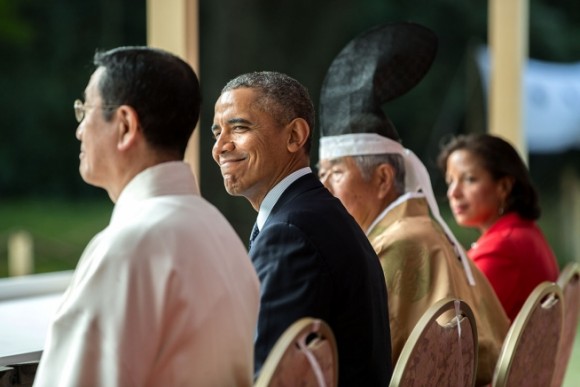Over at Foreign Policy, Christopher J. Fettweis argues the hysteria in Washington over Ukraine is based on “pathological beliefs” about foreign policy. “The United States has no interest at stake in eastern Ukraine or Crimea,” Fettweis writes. “It is hard to imagine how any outcome here would affect the American people…”
Most importantly, Fettweis debunks the pervasive myth that the U.S. must do something to show its strength against Russia over Ukraine:
How we act now, it is commonly believed, can signal to Moscow (or to Beijing, or to Tehran) how we are likely to respond to provocations to come. Our inaction will encourage their belligerence.
There is a mountain of research from political science to suggest that this is an illusion, that credibility earned today does not lead to successes tomorrow and therefore is never worth fighting for. Others simply do not learn the lessons we wish to teach through our actions. Our rivals tend to believe that the United States will act in accordance with its national interest, rather than because of its reputation for resolve earned in previous crises. In fact, when countries back down in the face of provocation, often their rivals believe that they will be more aggressive in the future…
Worrying about the messages sent during this crisis, in other words, distracts us from what ought to be its central fact: Ukraine does not really matter.
I’ve written about the credibility myth numerous times. In Reason back in March, I argued against the ridiculous notion that Putin decided to take action in Ukraine because of Obama’s failure to enforce his “red line” and bomb Syria several months earlier. The credibility canard is a issue that is largely settled in the scholarship, but continues to inflict analysis among politicians, strategists, and policy wonks.
Kudos to Fettweis for saying what nobody else in the mainstream dares to: Ukraine does not really matter.





